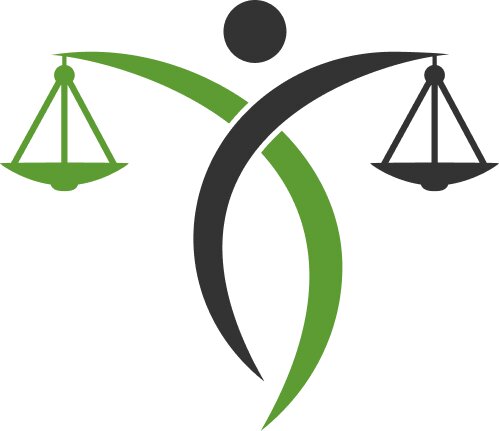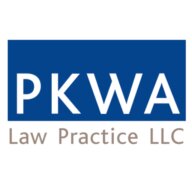Best Whistleblower & Qui Tam Lawyers in Singapore
Share your needs with us, get contacted by law firms.
Free. Takes 2 min.
Or refine your search by selecting a city:
List of the best lawyers in Singapore
About Whistleblower & Qui Tam Law in Singapore
Whistleblower & Qui Tam laws in Singapore are aimed at protecting individuals who report misconduct, fraud, or other illegal activities within organizations. These laws allow whistleblowers to come forward without fear of retaliation and provide incentives for exposing wrongdoing.
Why You May Need a Lawyer
You may need a lawyer in Whistleblower & Qui Tam cases if you have witnessed illegal activities in your workplace or organization and wish to report them without fear of repercussions. A lawyer can help protect your rights, guide you through the legal process, and assist in filing a Qui Tam lawsuit if necessary.
Local Laws Overview
In Singapore, the Whistleblower Protection Act provides legal protection to individuals who report corruption, fraud, or other illegal activities. The law prohibits retaliation against whistleblowers and offers rewards for information that leads to successful prosecutions.
Frequently Asked Questions
1. What is the difference between a whistleblower and a qui tam relator?
A whistleblower is an individual who reports misconduct or illegal activities, while a qui tam relator is someone who files a lawsuit on behalf of the government to recover damages from fraudulent activities.
2. Can I remain anonymous when reporting illegal activities?
Yes, you can usually make an anonymous report to the relevant authorities or your company's internal compliance team. However, anonymity may impact the credibility of your report.
3. What protections do whistleblowers have in Singapore?
Whistleblowers in Singapore are protected from retaliation, including dismissal, demotion, or harassment, under the Whistleblower Protection Act.
4. Can I receive a reward for reporting illegal activities?
Yes, some Whistleblower & Qui Tam laws offer financial rewards for individuals whose information leads to successful prosecutions or recoveries.
5. How do I know if I have a valid Whistleblower & Qui Tam case?
A lawyer can help you assess the strength of your case and determine if you have grounds to proceed with legal action.
6. What is the statute of limitations for filing a Qui Tam lawsuit in Singapore?
The statute of limitations for Qui Tam lawsuits varies, but it is crucial to act quickly to ensure your claim is not time-barred.
7. Can I face legal consequences for reporting illegal activities?
Under the Whistleblower Protection Act, whistleblowers who report misconduct in good faith are protected from legal repercussions.
8. How long does it take to resolve a Whistleblower & Qui Tam case?
The timeline for resolving a Whistleblower & Qui Tam case can vary depending on the complexity of the case, the cooperation of involved parties, and legal processes involved.
9. Can I seek legal aid if I cannot afford a lawyer?
There are legal aid options available for individuals who cannot afford legal representation, including pro bono services or legal aid organizations.
10. What should I do if I suspect illegal activities in my workplace?
If you suspect illegal activities in your workplace, it is essential to document evidence, report the misconduct to the appropriate authorities, and seek legal advice if necessary.
Additional Resources
For more information on Whistleblower & Qui Tam laws in Singapore, you can refer to the Whistleblower Protection Act and seek guidance from the Corrupt Practices Investigation Bureau (CPIB) or legal organizations specializing in whistleblower cases.
Next Steps
If you require legal assistance in a Whistleblower & Qui Tam case in Singapore, it is advisable to consult with a lawyer who specializes in this area of law. They can assess your situation, guide you through the legal process, and help protect your rights as a whistleblower or qui tam relator.
Lawzana helps you find the best lawyers and law firms in Singapore through a curated and pre-screened list of qualified legal professionals. Our platform offers rankings and detailed profiles of attorneys and law firms, allowing you to compare based on practice areas, including Whistleblower & Qui Tam, experience, and client feedback.
Each profile includes a description of the firm's areas of practice, client reviews, team members and partners, year of establishment, spoken languages, office locations, contact information, social media presence, and any published articles or resources. Most firms on our platform speak English and are experienced in both local and international legal matters.
Get a quote from top-rated law firms in Singapore — quickly, securely, and without unnecessary hassle.
Disclaimer:
The information provided on this page is for general informational purposes only and does not constitute legal advice. While we strive to ensure the accuracy and relevance of the content, legal information may change over time, and interpretations of the law can vary. You should always consult with a qualified legal professional for advice specific to your situation.
We disclaim all liability for actions taken or not taken based on the content of this page. If you believe any information is incorrect or outdated, please contact us, and we will review and update it where appropriate.
Browse whistleblower & qui tam law firms by city in Singapore
Refine your search by selecting a city.















